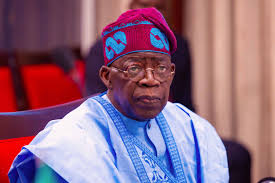Nigeria has urged the international community to stop “naming and shaming” the country over its security challenges. The appeal was made by Syndoph Endoni, Chargé d’Affaires of Nigeria’s Permanent Mission to the UN, while delivering Nigeria’s statement at the UN Security Council in New York.
Endoni spoke during discussions on the illicit proliferation of small arms and light weapons (SALW) and its impact on the Sahel. He noted that the uncontrolled flow of these weapons has worsened conflicts, prolonged insurgencies, and strengthened terrorist and extremist groups, resulting in severe loss of lives, widespread displacement, and the destruction of livelihoods.
He condemned the criminal acts fuelled by easy access to weapons, describing them as inhuman and unacceptable. He stressed that cooperation—not public criticism—is the only effective path to resolving the crisis.
Nigeria’s position comes amid the U.S. decision to designate the country a “Country of Particular Concern” over alleged Christian genocide, a claim Nigerian authorities have strongly rejected. As a permanent member of the Security Council, the U.S. plays a major role in shaping global security decisions, which all UN member states are bound to follow.
Endoni said the proliferation of small arms continues to undermine peace and stability across the Sahel. He explained that the mix of arms trafficking, terrorism, organised crime, and human trafficking has created a dangerous security environment with both regional and international implications.
For Nigeria, he said, the impact is severe, as illicit weapons continue to fuel terrorism, armed banditry, and communal conflicts, frustrating national and regional peace efforts.
He noted that Nigeria has taken decisive steps to address the problem, including the establishment of the National Centre for the Control of Small Arms and Light Weapons in 2021 to coordinate arms-control efforts and align with international standards.
Regionally, Nigeria continues to work with ECOWAS and the Multinational Joint Task Force to improve border security, share intelligence, and conduct joint operations aimed at dismantling trafficking networks and cutting off weapons supplies to non-state actors.
Endoni added that Nigeria remains committed to implementing the UN Programme of Action, the International Tracing Instrument, and the Arms Trade Treaty, which Nigeria was the first African country to sign and ratify.
He called for a comprehensive global approach to arms control, urging the Security Council to integrate small-arms regulation into conflict-prevention and peacebuilding strategies and ensure that sanctions and embargoes are properly implemented.
Nigeria also appealed for sustained international support in capacity-building, technology transfer, and border management, while emphasising stronger cooperation between the UN, regional bodies, and national governments to address root causes such as poverty, inequality, weak governance, and limited opportunities for young people.

